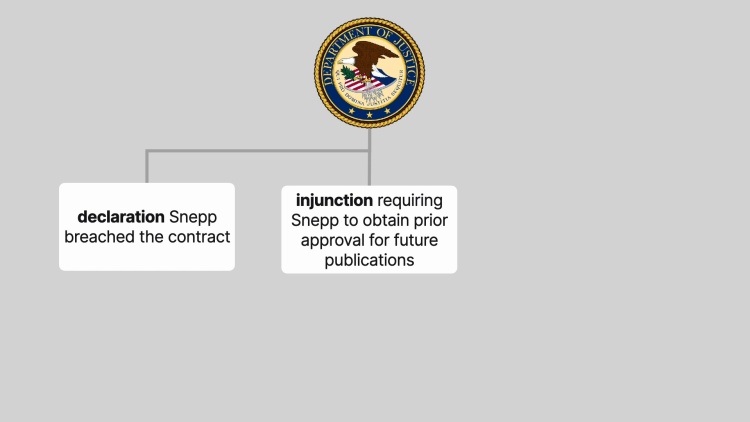Snepp v. United States
United States Supreme Court
444 U.S. 507 (1980)

- Written by Richard Lavigne, JD
Facts
Snepp (defendant) was a former employee of the Central Intelligence Agency who had signed a contract agreeing not to publish any information describing CIA activities without advance clearance and not to disclose any classified information without express authorization. Snepp published a book about CIA activities without acquiring advance approval. The United States (plaintiff) filed a breach of contract suit demanding an injunction prohibiting Snepp from publishing any future writings without advance approval and seeking a constructive trust upon any earnings derived from Snepp’s book. The district court found that Snepp had breached his contractual obligations and that the breach had caused irreparable harm to the government. The district court ordered the requested injunction and imposed a constructive trust on profits from the book. The court of appeals upheld the district court ruling except with respect to the imposition of the constructive trust. The court of appeals concluded that Snepp had a First Amendment right to publish unclassified information. The court of appeals based its decision to reverse the constructive trust order upon the government’s concession that Snepp’s book had not revealed any classified information. The United States petitioned the Supreme Court for review.
Rule of Law
Issue
Holding and Reasoning (Per Curiam)
Dissent (Stevens, J.)
What to do next…
Here's why 907,000 law students have relied on our case briefs:
- Written by law professors and practitioners, not other law students. 47,100 briefs, keyed to 996 casebooks. Top-notch customer support.
- The right amount of information, includes the facts, issues, rule of law, holding and reasoning, and any concurrences and dissents.
- Access in your classes, works on your mobile and tablet. Massive library of related video lessons and high quality multiple-choice questions.
- Easy to use, uniform format for every case brief. Written in plain English, not in legalese. Our briefs summarize and simplify; they don’t just repeat the court’s language.





